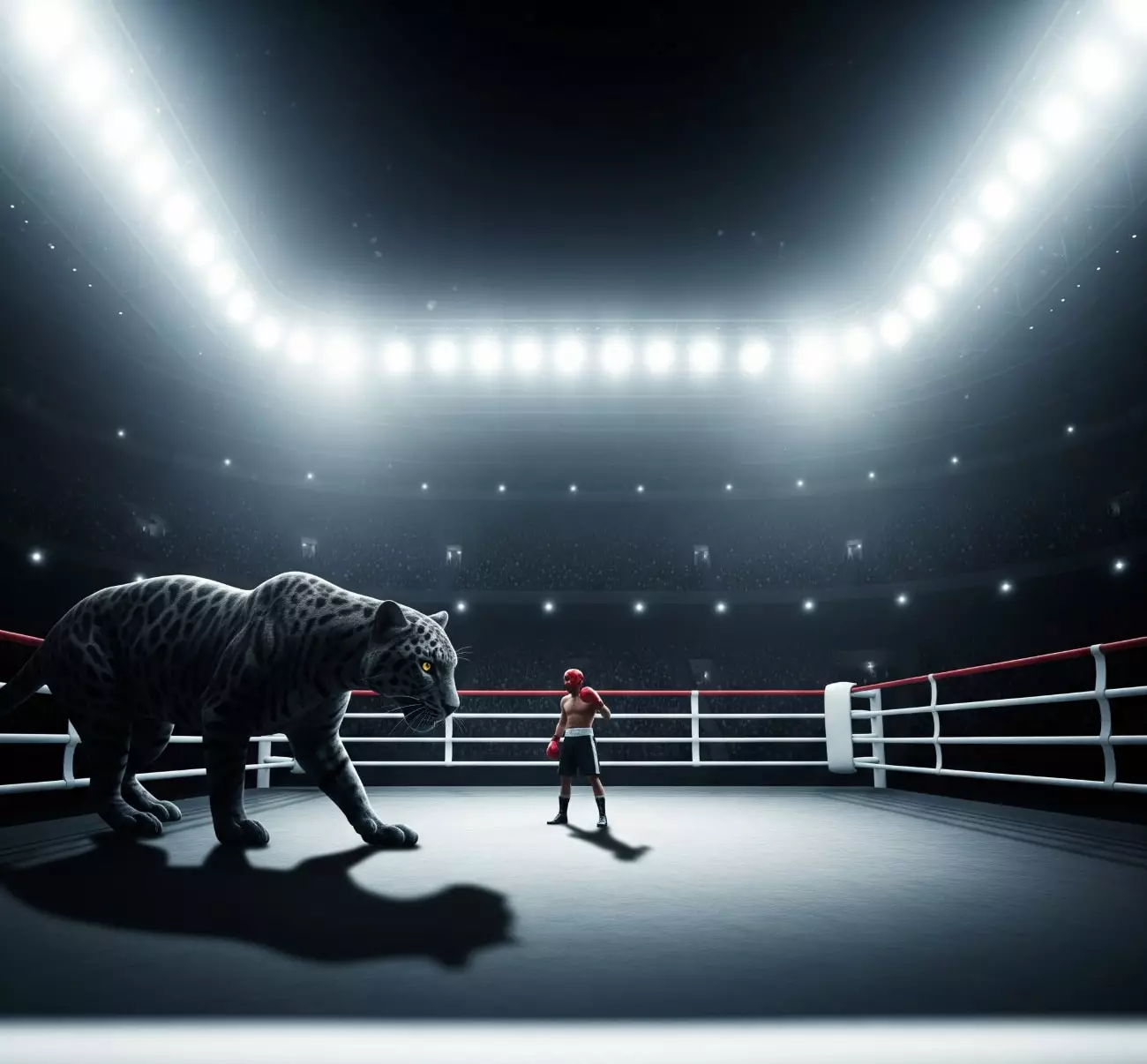Boxing, once regarded as the “sweet science” and a thrilling spectacle of raw human aggression, is now grappling with a troubling identity crisis. The sport’s integrity and appeal are under siege, primarily due to the attitudes of many current fighters and the financial structures backing them. Recently, boxing legend Shane Mosley shed light on an alarming trend: today’s fighters appear to be more interested in banking large paychecks than in putting on an exciting show for their fans. This perspective raises essential questions about what boxing has become, as it risks losing its visceral allure and transformative power to unite, excite, and inspire.
Money Over Mindset: A Moat Between Fighters and Fans
Mosley candidly expresses discontent with how contemporary boxers approach their craft. He outlines a stark contrast between his era—where fighters sought to showcase their skills and entertain audiences—and the current generation, which is perceived to possess an alarming “runner” mentality. Mosley asserts that a considerable number of today’s fighters navigate bouts primarily with the objective of securing a win without engaging in the thrilling exchanges that made boxing captivating to millions.
Some fighters may argue that this strategy is efficient and logical. After all, avoiding risk at all costs can lead to victory in the ring. However, Mosley and many fans feel that this approach cheapens the sport. It illustrates a lack of bravery and aggression; qualities that resonate deeply with the heart of boxing. The fighters who truly astound audiences are those who are willing to risk defeat for the thrill of glory, the thrill of a memorable fight that encapsulates the essence of boxing.
A Lack of Competitive Spirit: The Unwatchable Showdowns
Furthermore, Mosley criticizes the matchmaking strategies adopted by promoters. The practice of placing fighters like Moses Itauma against washed-up opponents, such as 37-year-old Dillian Whyte, does more to undermine boxing’s credibility than to enhance it. Output like Mosley’s reflects a disillusionment with fights that are not genuinely competitive. Promoters seem less inclined to create contests that would engage fans and more focused on matching fighters who can draw crowds based on name recognition alone.
This creates not only an unwatchable atmosphere but a culture where fighters feel no need to push their limits. One fundamental issue Mosley raises is the fear of losing—a fear that has been allowed to fester and grow among up-and-coming fighters. It seems as if maintaining an undefeated record takes precedence over competing fiercely, effectively robbing fans of bouts that hold drama and promise compelling narratives.
Emerging Rules: A Shift Back to Authentic Competition?
A glimmer of hope comes from promoter Turki Alalshikh’s newfound awareness of the issues within boxing today. As Mosley noted, Alalshikh has begun to address the situation, even instituting a “no running” rule intended to restore the sport’s competitive spirit. However, the real test will be whether this intentional shift can result in substantial changes in how fighters conduct themselves in the ring. Will the likes of Shakur Stevenson be willing to adapt their strategies to align with this new directive, or will they continue to prioritize navigation over engagement?
Should this new directive become a hard-and-fast rule, it could reshape the ethos of modern boxing. Alalshikh’s move might very well pave a potential avenue back to engaging spectacles and the heartfelt bravery exhibited in classic matches. However, its success hinges on enforcement and the willingness of the fighters to not only adapt but to commit to a renewed warrior mindset.
A Call for Genuine Fighters: Recovering the Essence of Boxing
Ultimately, Mosley’s sentiment calls on fighters to embrace a mentality characterized by fierceness and a sense of obligation to their fans. The legacy of legendary fighters like Mosley, Oscar De La Hoya, and Felix Trinidad was built on the very principles of dedication, tough competition, and the audacity to seize the moment.
For boxing to recover its roaring spirit, it must demand fighters who share the passion and determination that characterized earlier eras. It is vital for boxing to foster an environment where taking risks, showcasing talent, and providing entertainment are elevated above the greedy pursuit of financial gain. With the right vision and a collective commitment from both fighters and promoters, the sport can endeavor to recapture the fierce, electrifying atmosphere that originally made boxing the epic clash of warriors that it was meant to be.

